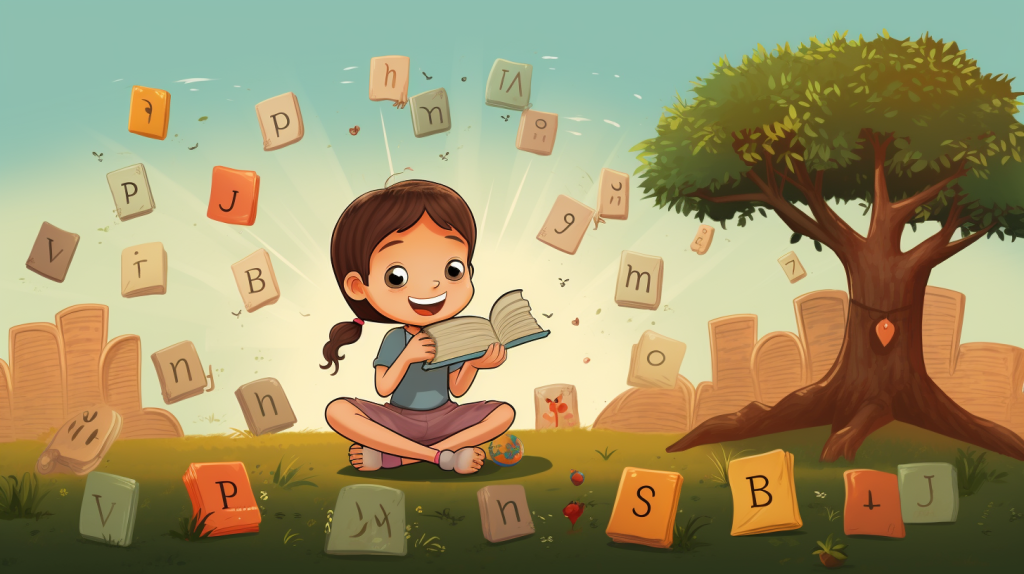The Power of Spelling: Nurturing Young Minds Through Words

In education, few subjects spark as much debate and discussion as spelling. While some may view it as a mundane task of memorising letter sequences, others recognise it as a cornerstone of language development and cognitive growth. In this blog post, we delve into the importance of spelling, especially for children, exploring how mastering this seemingly simple skill can ignite a love for language and pave the way for future academic success.
The Foundations of Spelling
Spelling is not merely about correctly arranging letters but about understanding the intricate dance of sounds and symbols that make up our language. For young learners, mastering spelling lays the groundwork for effective communication, critical thinking, and literacy skills. By breaking down words into their constituent parts, children begin to unravel the mysteries of language, sharpening their cognitive abilities in the process.
At its core, spelling fosters attention to detail and precision, qualities that are invaluable in both academic pursuits and everyday life. Whether crafting a compelling essay or composing a heartfelt letter, the ability to spell correctly empowers children to express themselves clearly and confidently.
The Spellbinding Journey of Learning
For many children, spelling represents a challenging yet rewarding journey filled with triumphs and setbacks. They build resilience and persistence in adversity as they grapple with homophones, irregular verbs, and silent letters. Each correctly spelt word is a testament to their hard work and dedication, reinforcing the belief that they can overcome any obstacle with practice and patience.
Moreover, spelling fosters a deep appreciation for language and its nuances. Through spelling bees, word games, and creative writing exercises, children explore the richness of vocabulary and expand their linguistic horizons. They discover the beauty of words and their power to convey emotions, ideas, and stories.
Unlocking the Gates to Academic Success
Beyond its intrinsic value, spelling plays a pivotal role in academic achievement. Proficiency in spelling is closely linked to improved reading comprehension, writing fluency, and overall academic performance. Children who excel in spelling are better equipped to tackle complex texts, articulate their thoughts effectively, and engage in meaningful discourse.
Furthermore, mastering spelling instils discipline and organisation in young minds. Memorising spelling rules, practising word lists, and applying them consistently sharpens their focus and enhances their study habits. These skills not only serve them well in language-related subjects but also set a strong foundation for success in other academic disciplines.

Fostering a Love for Language
While spelling may be a technical skill, its impact goes beyond mere orthography. Spelling opens the door to a lifelong journey of exploration and discovery by nurturing a love for language in children. Children develop a deep connection with words and their meanings through spelling games, creative writing prompts, and literary experiences.
Moreover, spelling encourages creativity and imagination, inviting children to experiment with language and craft their narratives. As they manipulate letters and sounds to form new words, they engage in linguistic play that fosters innovation and expression. This creative spark not only enriches their writing but also enhances their cognitive flexibility and problem-solving skills.

Embracing Diversity and Inclusivity
In today’s multicultural world, spelling serves as a bridge that connects people across languages and cultures. By learning to spell words from different origins and pronunciations, children gain a greater appreciation for diversity and inclusivity. They understand that language is a living, evolving entity that reflects the richness of human experience.
Moreover, spelling promotes empathy and understanding by highlighting the unique challenges faced by individuals with dyslexia or other learning differences. By creating inclusive learning environments that accommodate diverse spelling abilities, educators empower all children to thrive and succeed on their terms. This emphasis on empathy and support fosters a culture of respect and acceptance that extends far beyond the classroom.
Overcoming Challenges and Celebrating Progress
While the spelling journey may be strewn with challenges, every obstacle conquered and every lesson learned is a cause for celebration. Children who struggle with spelling deserve patience, encouragement, and support as they navigate the complexities of language. Educators and parents can instil the confidence and resilience needed to overcome setbacks and reach their full potential by providing them with a nurturing and positive learning environment.
Recognising that each child progresses at their own pace and faces unique hurdles is essential. By tailoring spelling instruction to individual needs and learning styles, teachers can empower students to grow and thrive in their linguistic abilities. Children can overcome spelling challenges and become confident communicators through personalised feedback, targeted interventions, and ongoing practice.
The Future of Spelling: Innovation and Adaptation
As we march into the digital age, the landscape of spelling is evolving rapidly. With spell-checkers, predictive text, and autocorrect features becoming ubiquitous in our digital devices, the traditional notions of spelling are being redefined. While these tools offer convenience and efficiency, they also raise questions about the importance of manual spelling skills in an increasingly automated world.
However, rather than viewing technology as a threat to spelling proficiency, we can harness its power to enhance and enrich the learning experience. Educational apps, interactive games, and online resources can supplement traditional spelling instruction, engaging children in new and exciting ways. By embracing innovation and adapting to the changing needs of learners, we can ensure that spelling remains a vibrant and essential component of language education.
Conclusion: Unleashing the Spellbinding Potential Within
In conclusion, spelling is far more than a rote memorisation exercise; it is a gateway to linguistic mastery, cognitive development, and academic success. By nurturing young minds through words, we empower children to express themselves with clarity, creativity, and confidence. Through spelling, they forge a deep connection with language, culture, and the world around them, opening doors to endless possibilities and opportunities.
As educators, parents, and mentors, let us cultivate a love for spelling in children, inspiring them to embark on a spellbinding journey of discovery and growth. Let us recognise each child’s unique talents and challenges, providing them with the tools and support they need to succeed. Together, we can unleash the spellbinding potential within every young learner, guiding them towards a future rich in language, literacy, and lifelong learning.
In the words of Dr. Seuss, “You have brains in your head. You have feet in your shoes. You can steer yourself in any direction you choose.” So, let us steer our children towards a future where spelling is not just a skill but a source of joy, empowerment, and limitless imagination.

As we embark on this shared journey of spelling and language, may we sow the seeds of curiosity, cultivate the fruits of knowledge, and harvest a bountiful harvest of words that will enrich and inspire future generations. Let spelling be not a task but a treasure, not a burden but a blessing, guiding us on a path of discovery, connection, and growth.
